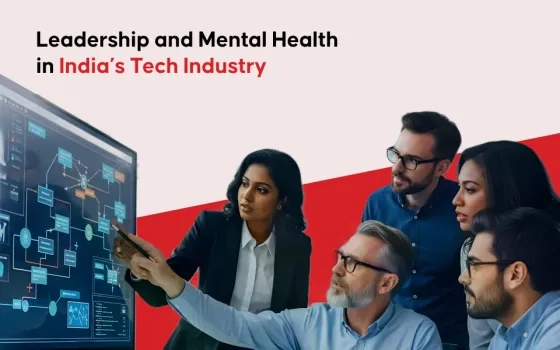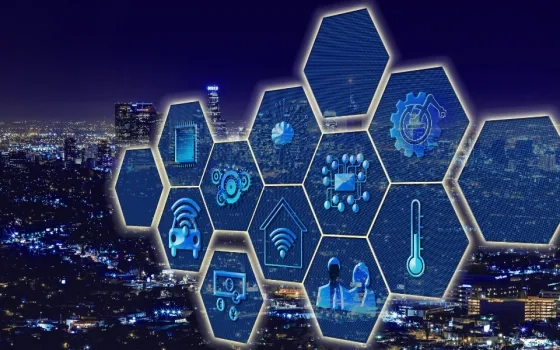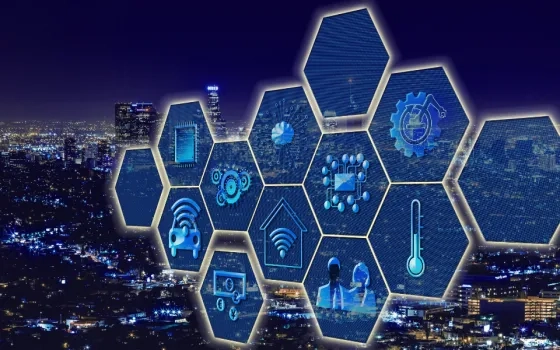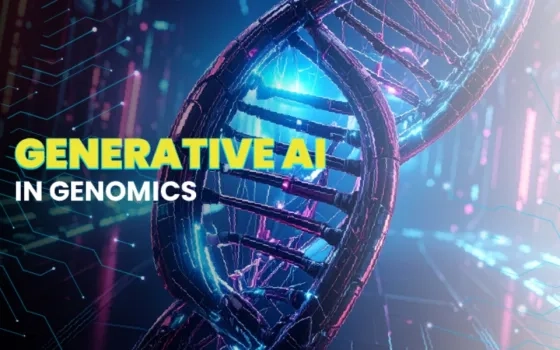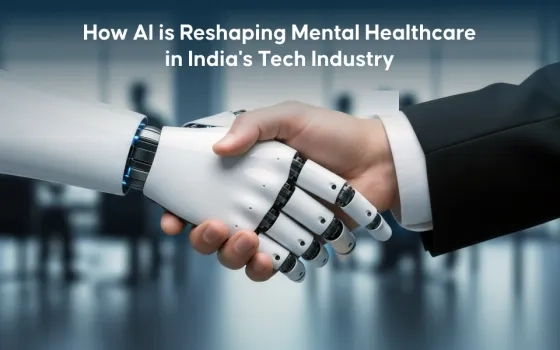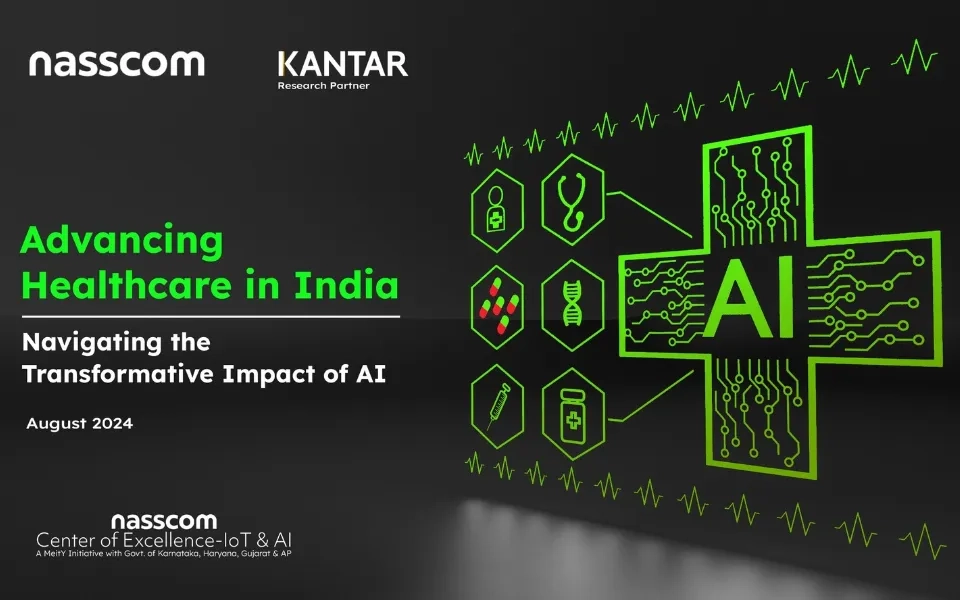The sixth edition of the Lifesciences & Healthcare Innovation Forum (LHIF) was held on 19th September, 2019 at The Leela Palace, Bengaluru, which saw some of the region’s most prolific leaders and decision makers in healthcare, medicine and technology converge and discuss the way ahead for India’s healthcare industry.
With a billion-dollar opportunity at hand and a billion-strong population waiting to witness the next wave of innovation in healthcare, LHIF presents as one of the few platforms in India to bring together the biggest stakeholders in policy, industry, innovation and technology to deliver a comprehensive impact on healthcare.
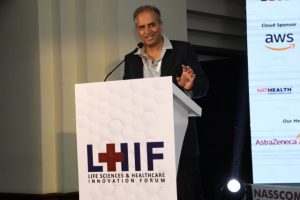
Dr. Devi Prasad Shetty, Chairman & Cofounder, Narayana Health
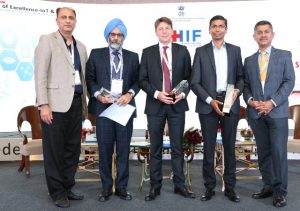
From left: Sanjeev Malhotra, CEO, NASSCOM Center of Excellence; Gagan Singh, Managing Director, AstraZeneca Pharma India Pvt. Ltd.; Niclas Jacobson, Min of Health & Social Affairs, Govt of Sweden; Nalinikanth Gollagunta, President & CEO, GE Healthcare South Asia and Raghuram Janapareddy, Director, Lifesciences & Healthcare, NASSCOM CoE.
The event began with keynotes delivered by Dr. Devi Shetty, Chairman & Executive Director, Narayana Health; Nalinikanth Gollagunta, President & CEO, GE Healthcare South Asia & MD, Wipro GE Healthcare; Gagan Singh, Managing Director, AstraZeneca Pharma India Ltd; and Niclas Jacobson, Deputy Director General & Head of Division for EU & International Affairs, Ministry of Health & Social Affairs, Govt. of Sweden.
“Use Medical Data Responsibly For Betterment of AI and Consequently, Healthcare Delivery Systems”
Dr Devi Prasad Shetty spoke extensively of the availability of medical data in India, and how this data should be responsibly used for the betterment of AI, which can have a profound impact on healthcare delivery systems, prognosis, diagnosis and treatment. Worldwide there is a loss of about $3 trillion USD due to errors in medical reporting. This is also the third leading cause of deaths in the world. With 70 million diabetics in India, we are the diabetic capital of the world. But there is a learning curve of 14 years to train a diabetologist. With only about 600 of them available in India, tech interventions is necessary to overcome the capacity constraint. Similar ailments exist in India, especially non-communicable diseases, which are rising rapidly and require specialist care. Technology needs to be implemented to achieve this complete care continuum.
“Prioritize on health, choose specific challenges, invest in partners & pursue scalable data platforms.”
As a leader in the med-tech industry, GE Healthcare is at the forefront of driving precision health. Nalinikanth Gollagunta took the opportunity to speak about the extent of challenges that exist in healthcare, the emergence of non-traditional players disrupting conventional healthcare value-chains with his statement that “Unicorns and Gorillas are on the prowl.” He emphasized on “Software eats Hardware” seeing as to how AI & ML plugins today can be bundled with existing and new medical devices. Stressing on the need to innovate on Genomics based Precision medicine, he talked about next-gen Gene sequencing and editing. Prioritize on health, choose simpler but specific problems in the spectrum, invest wisely in ecosystem partners that can deliver value and pursue scalable data platforms.
“Committed to strengthen collaboration with NASSCOM to drive digital healthcare agenda”
Gagan Singh shared that both NASSCOM and AstraZeneca are committed to strengthening their collaboration towards driving the digital healthcare agenda. This partnership would focus on healthcare delivery interventions via digital technologies and collaboration towards Healthcare Innovation Centers showcasing the impact of such solutions across the patient journey, from early diagnosis, to treatment and wellness. NASSCOM & AstraZeneca’s have an existing partnership under the iDREAM programme – a health tech start-up accelerator programme and incubation centre in Bengaluru that supports start-ups in bringing innovative and frugal solutions that can help in the management of NCDs in India and beyond.
On 7th September’19, AstraZeneca led a delegation of senior leaders from AstraZeneca and NASSCOM to Wuxi City in Jiangsu province, China, to study the set up and governance of the Healthcare IOT Innovation Centre there. Singh emphasized on the growth of China as a healthcare destination in Asia, and how India could largely benefit from matching its synergies to its Far Eastern counterpart for delivering better healthcare delivery models.
Decade-long fruitful relationship with India could extend into healthcare as well.”
As a leader in healthcare research and geriatric care, Sweden has a lot of provide to India’s growing healthcare ecosystem. Niclas Jacobsen spoke about Sweden’s efforts in setting an example for quality healthcare across the spectrum in Europe, and how a decade-long fruitful relationship with India could additionally translate into the healthcare domain as well.
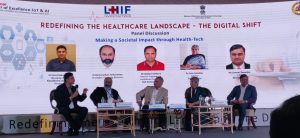
Panel 1: Making a Societal Impact through Health-Tech
The panelists spoke at length about how policy makers remain at the forefront of decision-making, and are critical to mobilize the industry. The panelists proposed of Model Health Village for easier integration of medical devices particularly in rural areas. In addition, device manufacturers could be encouraged to create a sandbox – an experimental platform with little to no regulations.
Panel 2: Impact of Med-Tech Innovation on Universal Healthcare
This panel extensively discussed around innovation in medical technology. Quoting examples of Uber, Facebook, Airbnb, they deliberated on non-med technology companies to revolutionize healthcare. Value care with outcome-based payment could be the new mantra of the provider. Transitioning to a two-way, Tele-medicine was touched up on. The panelists also made suggestions for collaboration on the lines where GE Healthcare’s Edison[X] can be an equitable platform for startups to ride their solutions on. Startups can hold on to their IP and benefit by a robust cybersecurity platform for their delivery besides facilitation to market access. Discussions was centered on the challenges for Innovators in the form of regulations, data-burden, laws for remote-monitoring, protocol practices for adoption of standards and inter-operability, investor pressure for faster market penetration
Panel 3: The Digital Doctor – The Future Perspective
This was an all-doctors panel and a revelation on how they deal with digital technologies as well as the challenges of integrating technology solutions. In clinical medicine, accuracy and utility is very important. Devices like a digital stethoscope can be valuable where an echo reading is recorded and played back for accurate diagnosis. Similarly, an AI algorithm for diagnosis of early sepsis can be life-saving for a pregnant woman. Standardized care protocol with hardened AI-based training programs in an ER scenario can prevent tragedies. Globally, about 20 million radiograph reports are inaccurate. AI solutions with the right annotations could be highly effective in minimizing errors. Queries on Doctor burnout was raised, to which the unanimous response was that in India, doctor’s burnout was due to high demand, not tech-usage. The present education system needs to incorporate technology as part of the curriculum. Pay-for-performance should be encouraged and linked to the morbidity & mortality rates. Processes should not be punitive as the supply of qualified medical staff is very low.
Industry success stories in digital adoption
Mr.Chandra Mouli, Chief Information Technology Officer at Sankara Nethralaya Medical Research Foundation filled in a critical gap that exists in healthcare technology by presenting use cases of industry adoption, and essentially conveying to the delegates the infinite possibilities emerging from technology, and the real-time impact on healthcare challenges.
Cloud Computing in Healthcare & Lifesciences – Amazon Internet Services
Digbijoy Shukla, Head of Startup Ecosystem, India – Amazon Internet Services spoke about the shift in business models today thanks to cloud services, and the benefits of data-rich industries & sectors like healthcare adopting versatile cloud offerings, allowing them to work with multiple stakeholders.
Building a Unified Digital Health Platform for Universal Health Coverage
Dr.Pankaj Gupta, Head of Digital Health – ACCESS Health International, discussed how IT was playing a pivotal role in the success & reach of nationalized healthcare schemes like Ayushman Bharat (PMJAY), and the applicability of scalable IT solutions is the need of healthcare to go the extra mile.
Healthcare Trends at a Glance
Mr.Gaurav Vasu, Founder, Unearthinsight shed light on what to expect in the coming months in the sector and the biggest healthcare trends for 2019.
LHIF 6.0 also hosted an exclusive industry roundtable:
The healthcare sector has been a slow adopter of technology due to complex nature in India. The industry is becoming more distributed because digital technology becoming more affordable and accessible. Healthcare providers, to thrive in this environment, must be willing to look to the future and embrace change.
In the last couple of years, the industry is disrupted by digitization in the quest to focus on enhanced customer experience and CEOs and boards are taking notice. The benefits of the cloud, data and mobile technologies has brought about a fundamental mindset change in the healthcare as they now shift from a volume-based to a value-based approach.
The industry now needs better strategies to keep costs low, while also driving engagement and transparency up, through carefully planned record management. Digital capability will improve profitability by boosting productivity and efficiency, also support an overall better standard of care, which meets customer and patient expectations by being personal, responsive, and completely future proof.
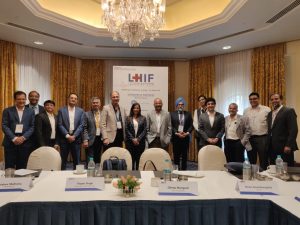
The industry roundtable was attended by
- Dileep Mangsuli, CTO, GE Healthcare
- Gagan Singh Bedi, MD AstraZeneca Pharma India
- Vidur Mahajan, Mahajan Imaging
- Arvind Kasargod, Group Medical Director, Cloudnine Group of Hospitals
- Pankaj Gupta, Head of Digital Health, Access Health International
- Gaurav Vasu, Founder, Unearth Insight
- Siddhartha Bhattacharya, Director, NatHealth
- Anoop Amarnath, Chief of Clinical Services, Manipal Health
- Ishaq Quadri, Secretary, HIMSS APAC India Chapter
- Sojwal Vora, Chief Procurement Officer, Manipal Hospitals
- Monica Sood Bhatia, Managing Director (India & Middle East), CIMS Medica
- Kiran Anandampillai, Technology Advisor, National Health Authority (NHA)
- Chandra Mouli, Chief Information Technology Officer, Sankara Nethralaya Medical Research
- Sanjeev Malhotra, CEO, NASSCOM COE
- Raghuram Janapareddy, Director of Lifesciences & Healthcare, NASSCOM COE
To be part of the NASSCOM Lifesciences & Healthcare Innovation Forum, write to lhif@nasscom.in
For more updates, follow NASSCOM CoE IoT-DSAI on LinkedIn, Twitter, Facebook, and Youtube











